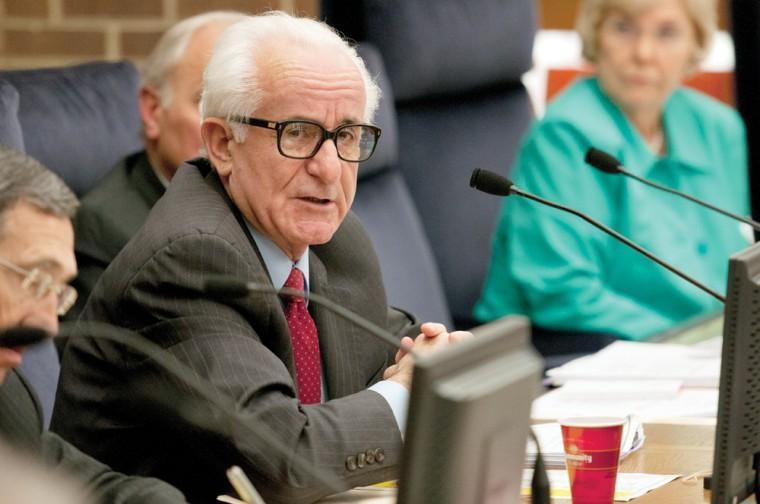Call it a coup d’etat, call it a mutiny, call it an overthrow.
That’s what LSU System President John Lombardi, who is known for his harsh bluntness, would have called it — until it happened to him on Friday. LSU System board members, pulling political strings, fired Lombardi with a 12-4 vote.
Lombardi was often perceived as outspoken and argumentative. He was not a champion of LSU and was disliked by many for his refusal to favor LSU’s flagship campus amid a budget crisis.
As Lombardi’s administration ends, we hope he’ll take with him several others who made the System Office a nasty pit of bureaucracy with only a few ounces of leadership.
Among them is Ray Lamonica, the LSU System Office general counsel, who The Daily Reveille recently reported is earning a six-figure salary from the Paul M. Hebert Law Center despite not teaching in seven years. Charles Zewe, the System’s Office vice president of communications and external affairs, should also let the door hit him on the way out, taking with him a legacy of spewing Lombardi’s opinions and trying to intimidate anyone who dared disagree.
Blunt and pointed, Lombardi’s no-nonsense “call a horse a horse” leadership style was paradoxical with what happened in his administration behind closed doors.
Despite Lombardi’s ouster, he’ll still be paid a hefty salary that will come out of students’ pockets. Lombardi knew he was being fired, which begs the question: Why didn’t he save face and resign?
Here’s why: His contract spans to next January and stipulates that he’ll earn 80 percent of his salary upon termination. He’ll therefore receive $450,000 until then, a menial drop considering he made more than $600,000 before being fired.
During his reign, Lombardi made outlandish decisions that threw students in the dark about LSU’s future. A prime example is his telling the LSU System administrators they couldn’t talk about their budget woes and they should thank Gov. Bobby Jindal for sparing them — despite annualized midyear cuts and budget shortfalls for the next year.
LSU’s budget cuts were only exacerbated under Lombardi’s administration. He made things worse for LSU this spring by forcing it to pay half of the cut to Pennington Biomedical Research Center. Last spring, he planned to re-reroute $27 million meant for LSU and give the flagship campus $10 million instead.
Despite these blemishes and the fact that most LSU administrators won’t miss Lombardi one bit, he was not entirely a failure in his job. Lombardi walked into LSU in 2007, faced with continual cuts to the LSU System as a whole. It wasn’t his fault that Louisiana was experiencing budget shortfalls or that the Louisiana Constitution demands only higher education and health care can be cut.
While Lombardi never necessarily fought for the flagship campus of LSU, he did fight for the LSU System. When this year’s cuts to the LSU medical schools became particularly bad, Lombardi stood up to Jindal. When LSU’s cut at the beginning of this fiscal year was too large, Lombardi authorized a Flagship Fund that brought in monetary contributions from the System and the Legislature.
Lombardi’s firing ultimately came because of his political brushes with Jindal and his administration, who are known to lack transparency themselves. Board members made it clear at Friday’s meeting that Jindal played puppet master for Lombardi’s firing.
Jindal is the person who handed down the huge cuts to higher education without trying to change the Louisiana Constitution, and Jindal is the person who forced Board of Supervisors members, whom he appointed, to do his dirty work by firing Lombardi. In his stances toward higher education, the governor has been no better than Lombardi.
Jindal will also appoint Lombardi’s successor while interim LSU System President William Jenkins, a former LSU chancellor and provost, takes the position while the air clears.
Jindal’s appointee may be no better than Lombardi if he chooses someone who will only do Jindal’s bidding instead of standing up for the integrity of higher education in the state.
It’s difficult to judge a system president. Our paradigm is for the good of LSU, but the System president’s paradigm must be for the good of the System. We hope the two will coincide in the future without the leadership of John Lombardi.








